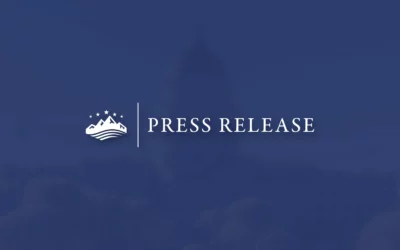Written by
- The Utah Appellate Nominating Commission is considering candidates to fill a vacancy on the Utah Supreme Court.
- In addition to baseline qualifications like judicial demeanor, the commission, the governor, and the Senate must prioritize the candidate’s willingness to apply existing law to the disputes the Court will consider.
- This means rejecting a subjective approach of looking at the subjective intent of lawmakers or voters to arrive at constitutional interpretations at odds with specific constitutional provisions.

In last week’s episode of the Defending Ideas podcast, I talked with Nic Dunn about redistricting in Utah. What made the episode unique was that we focused on constitutional issues rather than partisan considerations. The most important of the constitutional questions is the role of judges in supervising redistricting.
With the upcoming vacancy on the Utah Supreme Court occasioned by the retirement of Justice John Pearce, the Utah Appellate Nominating Commission has taken applications from prospective justices and conducted interviews. Earlier this month, the Commission announced seven candidates for the vacancy.
The announcement included a request for public comments. In Sutherland Institute’s submission, we noted that all of the candidates appear to have the qualifications identified in the Code of Judicial Administration of independence and a dignified demeanor.
In addition to these qualifications, though, the commission, governor, and legislature must prioritize in their consideration the most basic qualification for judicial office: a candidate’s dedication to perform the judicial function. This function is the responsibility to apply existing law to the disputes the Court will consider. This might seem obvious, but there is a strong temptation to look to other sources outside the law in determining disputes.
For instance, some recent decisions in Utah courts have looked to the subjective intent of lawmakers or voters to arrive at constitutional interpretations at odds with specific constitutional provisions. This approach is inherently subjective and creates a risk of derailing the interpretive process towards an inappropriate search for preferred policy results.
The Utah Supreme Court has correctly noted that the appropriate approach to constitutional interpretation is to apply the original public meaning of the language of the Constitution. This means, “the meaning that a knowledgeable and reasonable interpreter would have placed on the words at the time that the document was written,” as opposed to “the subjective intent of the writers.” There is no place for extraneous considerations like the motivation of lawmakers or evolving notions of fairness in this approach.
While the Commission likely considered this critical issue in its deliberations, it is worth emphasizing because of its importance to the integrity of our constitutional system and thus its priority among all of the other qualifications of a proposed judge.
This is why Alexander Hamilton (Federalist 78), identified as “indispensable” qualifications for a judge: a strict adherence to the Constitution and the fortitude to resist substituting their own wills for the decisions made by the legislature that are consistent with the Constitution.

Insights: analysis, research, and informed commentary from Sutherland experts. For elected officials and public policy professionals.

- The Utah Appellate Nominating Commission is considering candidates to fill a vacancy on the Utah Supreme Court.
- In addition to baseline qualifications like judicial demeanor, the commission, the governor, and the Senate must prioritize the candidate’s willingness to apply existing law to the disputes the Court will consider.
- This means rejecting a subjective approach of looking at the subjective intent of lawmakers or voters to arrive at constitutional interpretations at odds with specific constitutional provisions.
Read More
Navigating Public Ed: Assisting parents with public school choice
A statewide public school choice navigator could make school transfers simpler, more transparent, and parent-driven.
Free speech, civility, and civic courage | Rep. Celeste Maloy
Do you ever self-censor your political views because you’re worried about how others might react, or even fear backlash for sharing what you really believe?
Sutherland statement on the passing of Pres. Russell M. Nelson and Michigan Church incident
Sutherland Institute released the following statement in response to the events of the weekend.
Connect with Sutherland Institute
Join Our Donor Network
Follow Us
The post Choosing Utah’s next supreme court judge appeared first on Sutherland Institute.














